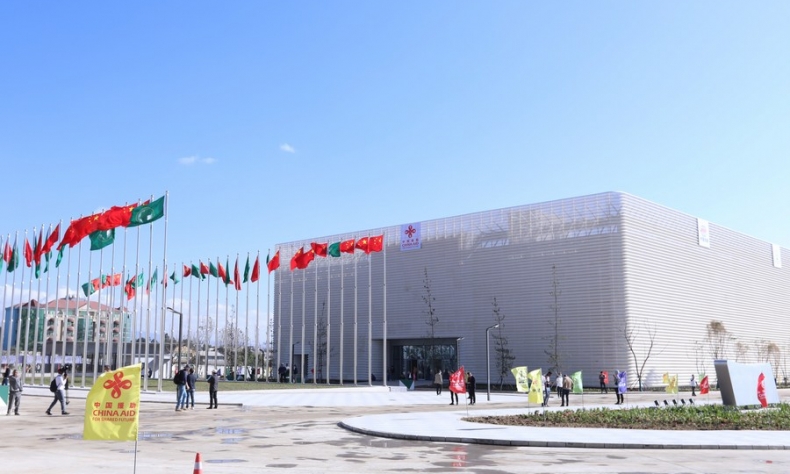Global Development Initiative: An Open and Anti-Hegemonic Public Good

The open global civilization that China seeks to lead reflects its openness to the world and its commitment to international cooperation from the Global Development Initiative.
In a world marked by geopolitical and economic instability, as well as by the trend towards regionalization and division into competitive blocs, China presents itself as a key player with a different vision: to lead an open and anti-hegemonic global civilization. This vision is based on traditional Chinese principles, where order and hierarchy do not mean absolute or despotic power, but an order based on law, mutual respect, and shared benefits.
China’s leading role is based on mutual respect and cooperation among nations. Unlike hegemonic practices, China does not seek to impose its will on other countries, but to establish equitable and beneficial relations. Its approach is based on the recognition of the diversity of cultures and political systems, and on the promotion of an international order based on law and a level playing field for all actors.
The principle of the order that China advocates is not about an oppressive hierarchy, but about a system based on respect for the law and the pursuit of shared benefits. In this view, order and hierarchy do not imply ruthless domination, but a structure that promotes stability and development for the benefit of all. The Chinese vision of order is understood as a distribution of roles and responsibilities, where leaders have the obligation to promote collective well-being and not the tyrannical exercise of power.
The open global civilization that China initiates reflects its openness to the world and its commitment to international cooperation from the Global Development Initiative (GDI). China understands that the development and progress of one nation should not be achieved at the expense of others, but through collaboration and mutually beneficial exchange.
Instead of seeking fragmentation and competition between blocs, China advocates a global vision in which all nations can coexist peacefully and work together to meet common challenges. In this regard, the Chinese approach opposes protectionism and unilateralism, and advocates greater regional and global integration and cooperation. China’s anti-hegemonic vision is also manifested in its rejection of the old forms of international politics based on imperialism, colonialism and sanctions.
China’s leading role in an open and anti-hegemonic global civilization is not a mere rhetorical aspiration but manifests itself in concrete actions. China has championed multilateralism and worked to strengthen existing international institutions, such as the World Trade Organization and the United Nations. In addition, China has proposed the creation of new institutions and mechanisms of global governance, seeking greater representativeness and equity in decision-making at the international level.

China positions itself as a leading player in an open and anti-hegemonic global civilization based on its traditional principles. Their vision seeks to overcome classical forms of domination and build an international order based on international law, equality, mutual respect and shared benefits, this vision is based on a deep understanding of their history, culture and traditional philosophy.
The idea of a world civilization from the GDI proposal goes beyond the geographical borders of one nation and encompasses the interconnection and interdependence of all societies in the world. China recognizes that global challenges, such as climate change, poverty, inequality and conflict, require joint solutions and cooperation among nations.
On July 4, 2023, President Xi Jinping attended the 23rd Meeting of the Council of Heads of State of the Shanghai Cooperation Organization (SCO) via video link. In his speech, he showed a powerful reiteration of China’s commitment to peace, multipolarity, multilateralism and the principles of the United Nations Charter. He stressed the importance of member states enhancing strategic communication and coordination, resolving differences through dialogue, promoting cooperation rather than competition, showing genuine respect for each other’s core interests and core concerns, and providing firm support for each other’s efforts to achieve development and rejuvenation.
In contrast to the notion of hegemony, where one nation seeks to dominate and exert power over others, China seeks to promote an order based on equality among all nations, on shared principles and values. This involves respecting the sovereignty and cultural diversity of each nation and working towards mutual benefit rather than unilateral exploitation. China understands that global peace and stability can only be achieved through collaboration and dialogue between different actors, and not through the imposition of a single worldview.
The emphasis on traditional Chinese principles, such as law-based order and mutual respect, reflects a philosophy rooted in ancient Chinese wisdom. The Confucian tradition, for example, has promoted the importance of harmonious and equitable relations between individuals and societies.
These principles extend to the international sphere, where China seeks to establish relations based on trust, respect and cooperation. China has been an active advocate of multilateralism and has sought to strengthen existing international institutions as a means of addressing global issues jointly. In this regard, China advocated for greater participation and representation of developing countries in global decision-making, recognizing the importance of equity and inclusion in global governance.
China’s vision as a leading player in an open, anti-hegemonic global civilization aligns with the need to address environmental challenges from a global and collaborative perspective. Environmental protection cannot be achieved in isolation; it requires joint action by all nations and a profound transformation of economic and social systems. The proposal of an ecological civilization implies a transition towards a model of sustainable development, which values and protects nature, promotes equity and seeks mutual benefit.
In this context, China plays a leading role committed to building a sustainable future for all humanity. Its Global Development Initiative, based on traditional principles of order, mutual respect and shared benefits, extends to the environmental field. China recognizes that environmental protection is a common responsibility and seeks to promote international cooperation to address environmental challenges and build a global ecological civilization.
The author is Director, PhD in Public and Business Management, Central American Institute of Public Administration (ICAP/SICA), and Researcher of Center for Historical Research of Central America, University of Costa Rica.
The article reflects the author’s opinions, and not necessarily the views of China Focus.
 Facebook
Facebook
 Twitter
Twitter
 Linkedin
Linkedin
 Google +
Google +










